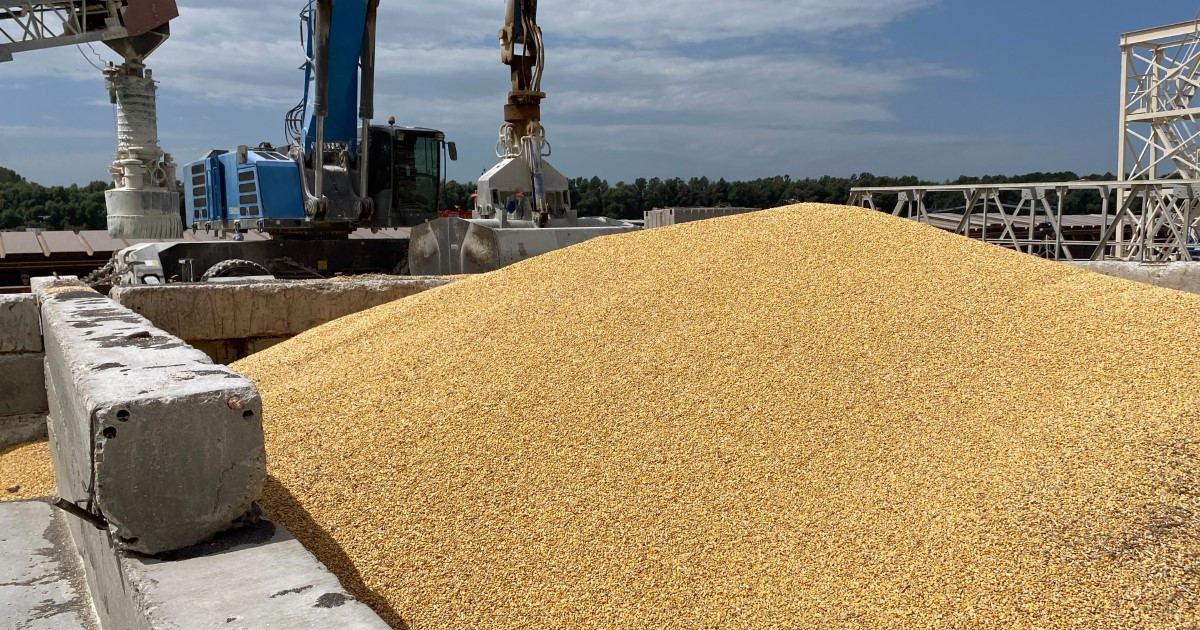Since the start of the war, Ukraine has been working on establishing new export routes

Kyiv appears to have been preparing for some time for Russia to withdraw from the grain deal, which made it possible for Ukraine to export grain via its seaports. Just a few weeks ago, at the beginning of July, the Ukrainian government set up an insurance fund against security risks for shipping companies prepared to continue transporting Ukrainian grain by sea even if Russia withdrew from the agreement.
"This is 20 billion hryvnia [about $534 million] that have been earmarked in the national budget," Taras Vysotskyi, Ukraine's deputy minister for agrarian policy and food, told DW.
Now, though, it is unclear whether this money can be used for its intended purpose. Since July 20, Russia has said it will deem all ships calling at Ukraine's Black Sea ports to be "potential carriers of military cargo." This means that civilian freighters would also be potential targets for Russian attacks.
Ukraine rejects Russia's conditions
Moscow announced its withdrawal from the grain deal a few hours before it officially expired on July 17. The Kremlin accuses Ukraine and the West of failing to honor agreements, and is demanding the fulfillment of five conditions.
According to Serhiy Ivaschenko, the CEO of the Ukrainian Grain Association, it would not benefit Ukraine to continue the grain deal under the same conditions as before. He says Russia makes it difficult for ships to pass through the Black Sea and blocks their passage, claiming a need for additional inspections.
"Russia's capriciousness — sometimes they inspect, sometimes they don't, sometimes they delay — has meant we've lost about $30 on every ton of grain," he told DW. The Grain Association calculates that, as a result, Ukrainian farmers have lost a total of more than $1 billion. "Without Russia, and without this gridlock, we will be able to reduce logistics costs," Ivaschenko believes.
Oleh Nivyevskyi of the Kyiv School of Economics says that, initially, the grain deal provided Ukraine with the opportunity to export surplus grain from the previous harvest. "But then, because of Russia's actions, confidence in this corridor was lost, as it entailed additional insurance costs," he explains.
The economist is calling for swifter development of alternative export routes so Ukraine will not be dependent in future on Russia's conduct in the Black Sea. His advice is for Ukraine to increase its export capacity on its western borders by extending the rail network, deepening river beds and constructing transshipment terminals.
Alternative routes, including the Danube
According to the Ukrainian Ministry of Agrarian Policy, the grain deal enabled Ukraine to export 32 million tons of grain and oil by sea over the past year. Another 33 million tons of grain, oil and processed products were transported via other routes.
Deputy Minister Taras Vysotskyi says the route along the river Danube was the most effective. About 20 million tons of grain and oil were exported this way. In addition, approximately 10 million tons of grain were transported by rail, and another 3 million tons by road.
"We plan to use these export routes more heavily, and to achieve a total volume of 40 to 42 million tons across the three routes," Vysotskyi said. He added that Ukrainian agricultural producers were already investing in river port infrastructure. Furthermore, he said, negotiations were underway to simplify checks on Ukrainian grain at European borders, as these slow down overland transit to European ports.
This year, Ukraine plans to harvest more than 50 million tons of grain. About 9 million tons of last year's crop are still in storage. Ukrainian producers now rely primarily on exports via the Danube, from the ports of Izmail and Reni.









